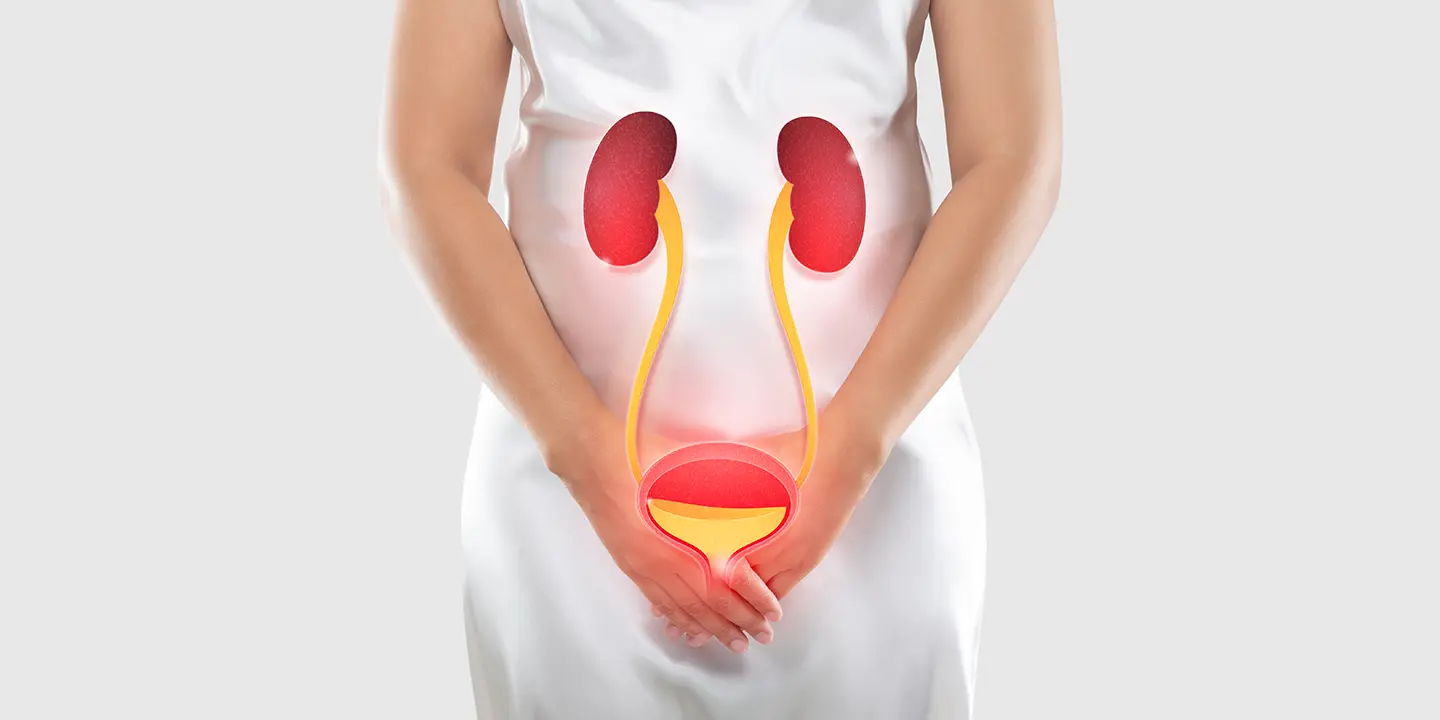
Risk content: Medical abortion is a procedure done for abortion by using combinations of medications either taken orally or through the vagina. These medicines work by stopping the growth of pregnancy and then causing the lining of the womb to shed and can be done when pregnancy begins and until around nine weeks of pregnancy. Your gynecologist will use an ultrasound to confirm that you are pregnant and how long your pregnancy is. If you are beyond nine weeks of pregnancy, there are other options to end it. At Queen’s gynecology, the medical termination of pregnancy is done by the best and most trained gynecologists or Abortion expert Doctors. Here the diagnosis of pregnancy up to 14 weeks can be made by home pregnancy kit, lab blood test, and ultrasound. It is one of the best clinics for medical and surgical abortion procedures in Delhi.
In this Article
Medical abortion and surgical abortion – The difference between the two
Unplanned pregnancies are quite common nowadays, and medical and surgical options are two widely accepted methods for abortion. The choice is based on the woman’s preferences, circumstances, physical conditions, and pregnancy duration. Both procedures are safe and efficient in terminating an unwanted pregnancy. Let us discuss some common differences between the two.
Medical abortion – best for early abortion
Medical abortion is the early abortion option suited for those whose pregnancy age is less than eight weeks. The process involves medications rather than surgery to terminate the pregnancy. During the procedure, women must take two drugs at a specific time. The first medicine is called mifepristone or RU-486, and it is taken at the gynecologist’s clinic. This medicine causes the lining of your womb to break down. After 24 to 48 hours of taking the medication, you must take the second medicine, Misoprostol; your uterus will contract and be empty. Generally, your gynecologist will recommend you for a second appointment instead of taking Misoprostol at home. After it, you also have to visit the clinic for a third time to verify that the medication has successfully done its job or if any abortion pill pain you have. It is the best option for those who have not more than ten weeks of pregnancy; the efficacy rate of the procedure is 95 to 97 percent, and it is much more effective if the abortion is performed earlier.
Medical abortion – what to expect
After the medical abortion is successfully done, you can expect medical abortion pain along with strong cramps, which may require over-the-counter pain medication. You may have heavy bleeding and even pass some blood clots. In a few cases, you may experience light bleeding for about two weeks. After the procedure, you can become pregnant and bear children as and when you want. Both the medications used during the process have been studied extensively and are safe, which is why the complications are extremely rare.
Surgical abortion – option for abortion in the first trimester
Surgical abortion is an abortion procedure that involves surgery to terminate a pregnancy and is of two types, i.e., aspiration and dilation and evacuation. During the first trimester of pregnancy, aspiration is the preferred surgical method. Trained abortion experts perform the procedure, and they numb and dilate your cervix to allow for a vacuum tube that uses suction to empty your uterus. Another method called D&E is used for later-term abortions after the first trimester up to 24 weeks. The process is the same as the aspiration method. It is recommended when the fetus is discovered to have severe medical abnormalities at later stages or in case of a later-term miscarriage. The medical termination of pregnancy takes a few minutes, and you have to give the time of three to four hours in all.
Surgical abortion – what to expect
After the surgical option, you can expect intense cramping during the procedure and light to moderate bleeding for about six to eight weeks following it. The process has about 99 percent effective rate, and the first-trimester abortion involves less than 1 percent of complications. If in case you have no other severe health issues, your ability to have children will not be impaired or affected. Choosing the termination of pregnancy is not an easy decision, but it is best for you to visit the best gynecologist to know all about the abortion procedures and to know what is best for you.
Related Blog – 10 Warning Signs During Pregnancy
10 Myths Debunked You Might Believe About Medical Abortion
When it comes to your health, giving too much focus to myths and misconceptions can be dangerous. In terms of various abortions, procedures have no basis at all. The truth is that abortion, whether medical abortion or surgical abortion, is the safest medical procedure, which has led to a tremendous amount of research that proves that all these related myths are false. It is better to discuss these myths and misconceptions to change the conversations surrounding abortion. Let us tell you about ten myths related to medical abortions that you must never believe:
- Abortion means killing a baby.
The most common myth about medical termination of pregnancy is that it kills a baby, and also there are many controversies surrounding it. In many arguments related to politics, religion, or morality debates, it is the most common topic on which ongoing discussions are carried out. All must focus on scientific facts first, as in the first trimester, no embryo develops the fetus after the end of the second month of gestation. During these early pregnancy stages, the fetus is not an autonomous being. During the second or third trimesters, when abortions are performed, the fetus is not viable and cannot survive on its own without being attached to the mother’s womb. Thus, how can it be a murder or killing of a baby?
- Abortion is very dangerous.
Abortion is not at all dangerous as it is the most safest procedure, much safer than pregnancy itself. Every medical or surgical procedure has risks and benefits, which is why clinics offer unbiased, truthful, detailed information to any person who wishes to go for an abortion procedure. But in terms of early abortion done by the medical abortion process, it has an enviable safety record. Both medical and surgical abortions have less than a 1 percent rate of major complications linked with it; abortion is most safety process even than childbirth, as per many pieces of research; pregnant women are 15 times more likely to die in childbirth complications rather than in abortion procedures.
- After the abortion, you cannot get pregnant again.
Abortions, especially medical abortions, have been found to have no effect on future fertility. Also, infertility because of surgical abortions is also extremely very rare and is also treatable. There are many women who choose medical termination of pregnancy in hopes of conceiving in the future; however, it is natural to be concerned about future pregnancy. Abortion is labeled as a surgery that involves scraping out the uterus and causes pain. The truth is something else, as there is absolutely no link between infertility and abortion. In fact, women can get pregnant immediately following the abortion. The procedure is very safe, whether surgical or abortion pill process. It does not at all increase your chances of infertility, ectopic pregnancies, miscarriages, or birth effects in the future.
- Abortion involves unbearable pain.
It is another myth regarding abortion that the procedure involves unbearable pain. Medical abortion is one of the safest and best ways to terminate a pregnancy. However, there is no abortion pill pain that it affects; just cramping pain can be expected. Also, always remember that anything that causes contraction in the uterus walls or muscles tends to induce pains in the body, be it cramping, pregnancy, childbirth, or abortion; medical abortion is not painful but does cause some pain. Still, it is bearable and feels like a menstrual cramp. Your gynecologist is well versed in this and prescribes you medications to eliminate this pain and ease the side effects if any. The pain intensity following the abortion depends upon the body types of the person and the week of pregnancy they are in. The pain varies from person to person, and thus it cannot be predicted precisely.
- Medical abortions are unsafe for teenage girls.
Unwanted pregnancy is a very stressful situation, and teenagers are especially advised to talk about it with family if they get pregnant. They should never hesitate to talk about it or consult the best gynecologist, as the sooner they consult it, the better for them. Teenage pregnancy termination is a challenge and should be done with proper care. Teenage pregnancy is generally done with the abortion pill process, but it is best if done with family involvement and the concerned team of doctors. As per law in India, the abortion process is confidential. A judge can determine if an adolescent is mature enough to have an abortion without involving her parents, and the process is known as judicial bypass. But this all takes time and resources; there are some conditions that make a person ineligible for medical abortion, and being a teen is not one among them.
- Abortion causes breast cancer.
This is a myth about abortion, as there is no link between abortion and breast cancer. Several high-quality research projects have examined this connection between abortion and cancer and found no proof that having an abortion affects the risk of breast cancer. Always remember that if you have ever had a baby, you will have a low risk of breast cancer, even if you had an abortion. If you never have a baby, you won’t have less chance of breast cancer, even if you have not had an abortion. Thus having an abortion never increases your risk of developing breast cancer.
- Any doctor can do a medical abortion.
Medical abortion is a safe process if done by an expert doctor or gynecologist. The process has a low risk of complications but will be done under the guidance of the best abortion experts. A general health care provider cannot offer medical abortion by just prescribing as they do for other health conditions. There are no providers also who prescribe the pills without any recommendations. The best and easiest way to have medical termination for pregnancy is by consulting the best gynecologist.
- Abortion is for selfish people.
It is a myth that only selfish people have abortions, as many factors go into deciding whether a person wants to continue the pregnancy or wants to have an abortion. People can determine their own lives and paths based on various circumstances. This is not selfishness but maturity and courage to follow what you decide. However, there are many myths linked with it but put your life as a priority while you decide. It is your life, your body, your goals, your dreams, and your decision only to have a child or not.
- Abortion has many psychological and emotional side effects.
There is no evidence supporting abortion is linked with the post-abortion syndrome and causes long-term psychological and emotional problems. Following early abortion or any abortion, many women have a familiar feeling that that is a relief . they feel that they have made an accessible and well-versed decision that is right for them. This feeling of mental satisfaction never lets them have emotional or psychological trauma. Some women may feel sad, but that is also short-term. Grief is a normal emotion after getting an abortion and also temporary and short-term. Also, every woman will have a unique experience d if she needs to access services to help her decide for it and provide support pre and post-abortion.
- Abortion is a tool for birth control nowadays.
As per research, women have abortions when they are 45, and out of them, almost all are already mothers; thus, it is a myth that women take it as a birth control tool. This myth also makes women think they choose abortion because they are irresponsible. Women nowadays use many birth control options. However, there are cases for medically emergency abortion, too, in which a woman wants to have a child. Still, the pregnancy poses a danger to her health or is considered no longer viable, and thus there is a need for an abortion.
How does Queen’s gynecology help you?
Queen’s gynecology offers the best treatment in Delhi and believes in handling medical termination of pregnancy with utmost care and confidentiality. They also have expert doctors to conduct surgical abortions by vacuum suction, which is relatively safe and legal in India. You should discuss all safe pregnancy termination options with a trained gynecologist or abortion expert doctor here to avoid future female infections and infertility cases. The top doctors here have experience in handling unplanned pregnancy cases up to 12 weeks. The range of cost of medical termination is Rs. 5000 to Rs. 40,000. However, the cost of an abortion varies and depends upon many factors, including the doctor’s expertise, city, duration of pregnancy, patient’s health condition, age, and type of treatment selected, i.e., medical abortion or surgical abortion, and type of hospital or clinic facility, post-surgical complications if any and duration of stay. The success rate of abortion is about 99 percent, depending upon the doctor’s skills.
Conclusion
Any abortion procedure, when done under the guidance of the best gynecologist, will be safe and will not have any complications. Medical abortion is considered safe and most commonly used to terminate an early pregnancy, but it should never be consumed without medical supervision or guidance, as this can be risky. However there are many myths involved with this, but we have debunked some common misconceptions and myths about abortion. It is best to discuss all details with the best gynecologist at Queen’s gynecology, the best clinic in Delhi that offers treatments for all women-related issues.
Frequently Asked Questions
Yes, abortion is one of the safest ways to terminate a pregnancy if and when performed under expert guidance.
No, general health care providers better offer abortion as most abortion clinics have expert abortion doctors that provide abortion care.
The cost of an abortion varies and depends upon many factors.
Medical abortion is a procedure that ends a pregnancy through the abortion pill process and can be prescribed up to 10 weeks into pregnancy. On the other hand, emergency contraception is a form of birth control that prevents pregnancy and will not work if you are pregnant.
Conclusion
Any abortion procedure, when done under the guidance of the best gynecologist, will be safe and will not have any complications. Medical abortion is considered safe and most commonly used to terminate an early pregnancy, but it should never be consumed without medical supervision or guidance, as this can be risky. However there are many myths involved with this, but we have debunked some common misconceptions and myths about abortion. It is best to discuss all details with the best gynecologist at Queen’s gynecology, the best clinic in Delhi that offers treatments for all women-related issues.




























































































































































